Samsung, LG consider moving electronics plants to US from Mexico
Korean firms mull measures to best respond to Trump’s protectionist policies in his second term
By Jan 21, 2025 (Gmt+09:00)
Hyundai to launch 42 new cars to cope with Trump tariffs, EV slowdown


South Korea’s young rich vs old rich: Coins, art outpace bonds, funds


LG Chem’s medical skincare business sale draws tepid bid


S.Korea plans $1.2 bn forex bond issue after presidential election


S.Korean gaming giant Netmarble eyes headquarters building sale


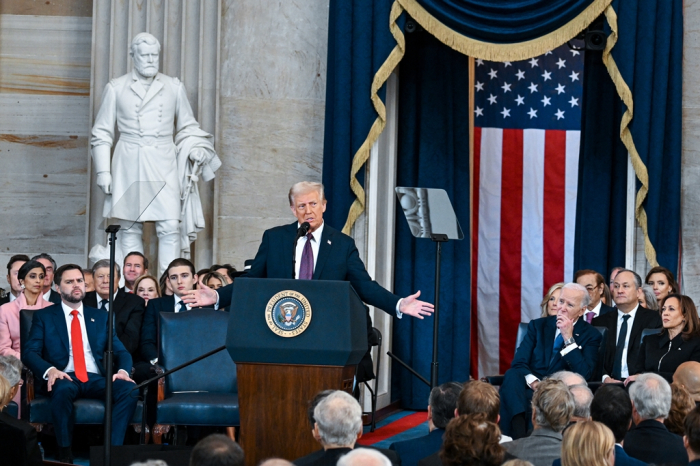
South Korea’s leading electronics companies such as Samsung and LG are considering moving their plants in Mexico to the US to respond to President Donald Trump’s protectionist policies in his second term.
Trump, who was sworn in as the new US president on Monday, officially announced plans to impose a 25% tariff on products from Mexico and Canada, keeping major Korean companies that operate factories in these countries on their toes.
The tariffs, which would rise from 0% to 25%, threaten to offset the advantages of local production that Korean firms have enjoyed for years, such as lower labor and logistics costs.
In response, Samsung Electronics Co. and LG Electronics Inc. are considering relocating their appliance production from Mexico to the US, people familiar with the matter said on Tuesday.
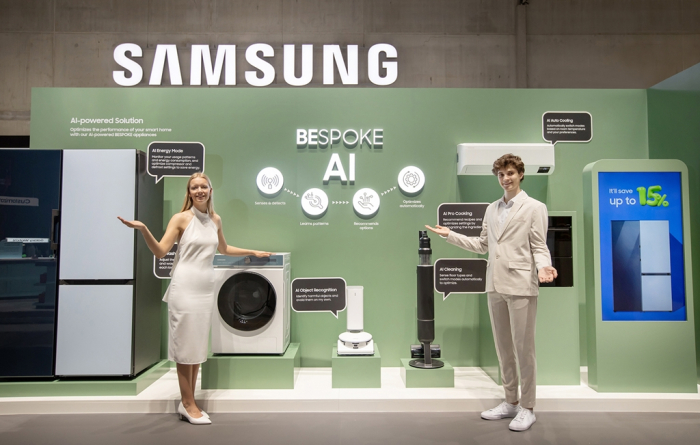
SAMSUNG TO PRODUCE DRYERS AT US PLANT
Sources said Samsung is reviewing plans to move part of its dryer production from its factory in Querétaro, Mexico to its US home appliances plant in Newberry, South Carolina.
Currently, Samsung produces refrigerators, washing machines and dryers in Querétaro for sale in Latin America and the US while manufacturing TVs in the Mexican city of Tijuana, just south of San Diego, California.
Industry sources said Samsung is seriously considering moving its dryer production from Mexico to the US as Trump said on inauguration day that the US government plans to impose a 25% tariff on goods from Mexico and Canada starting in February.
Samsung’s Newberry plant currently produces washing machines.
The Korean tech giant built the plant in January 2018 in response to US safeguard measures against Korean washing machines.
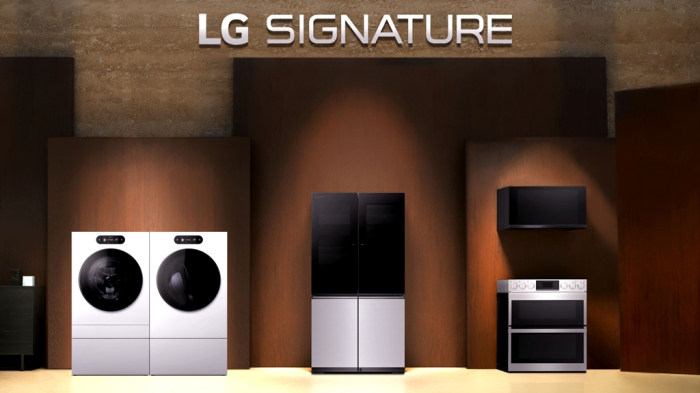
Since dryers and washing machines share similar production processes, Samsung spent $380 million, a relatively small amount, to build the plant.
To preemptively address the impending US tariffs, Samsung transferred part of its refrigerator production at its plant in Mexico to its Gwangju plant in Korea late last year.
“If a 25% tariff is imposed on Mexican products, it would be much cheaper to produce premium products in Korea and export them,” said an industry executive.
LG ELECTRONICS TO EXPAND TENNESSEE OPERATIONS
Home appliances giant LG Electronics is also considering moving production of refrigerators and TVs from Mexico to its plant in Clarksville, Tennessee, which manufactures washing machines and dryers.
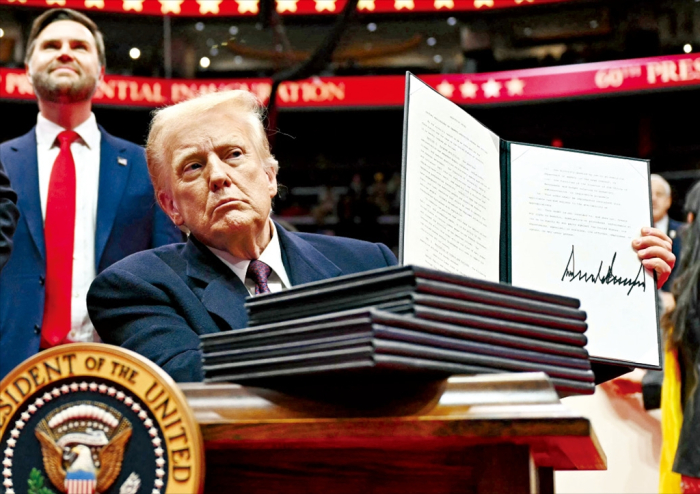
LG has secured land near its Clarksville plant – large enough to build four additional factories.
“Establishing a new factory in the US or moving production facilities to the US not only addresses tariff issues but also enhances agility by allowing companies to swiftly respond to consumer needs,” said an electronics industry official.
HYUNDAI, KIA TO BOOST US PRODUCTION
Korea’s two leading automakers – Hyundai Motor Co. and Kia Corp. – are also planning to increase their US production to minimize the negative impact of planned tariffs.
Hyundai Motor America’s operations include its North American headquarters in California, the Hyundai Motor Manufacturing Alabama assembly plant, the all-new Hyundai Motor Group Metaplant America (HMGMA) and several cutting-edge R&D facilities.
The automotive conglomerate said that if Hyundai’s US plants, including HMGMA, which began operations late last year, and Kia’s manufacturing plant in Georgia, are combined, their annual production capacity would reach 1.18 million units.
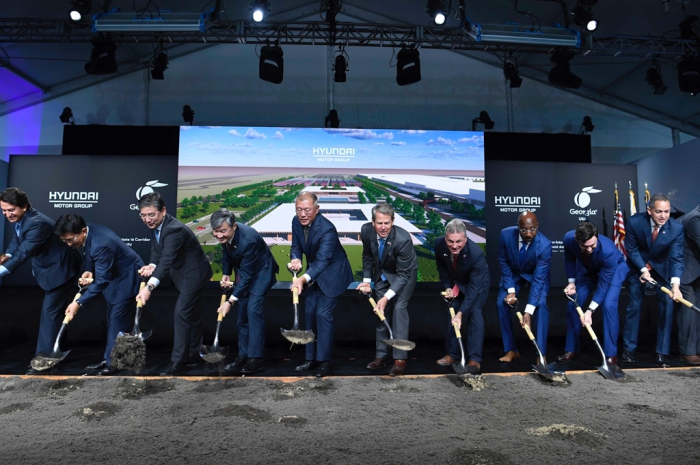
Korea’s top battery maker LG Energy Solution Ltd., which is building a battery plant in Canada with Stellantis, is exploring ways to counter the 25% tariff, sources said.
IRA REPEAL CONCERNS
As President Trump enters his second term, concerns are growing that the Inflation Reduction Act (IRA), which provides subsidies for electric vehicle (EV) purchases, could be repealed.
Analysts said that while a full repeal would require congressional approval, Trump is more likely to use executive orders to reduce IRA benefits.
Korean chipmakers, meanwhile, are concerned that planned subsidies and tax credits under the US CHIPS Act would dwindle.
The Biden administration promised $4.7 billion and $460 million, respectively, in subsidies to Samsung Electronics and SK Hynix Inc. – the world’s two largest memory chipmakers.
The amounts, however, could be reduced during the disbursement process, analysts said.
Write to Jeong-Soo Hwang, Hyung-Kyu Kim and Gil-Sung Yang at hjs@hankyung.com
In-Soo Nam edited this article.
-
 ElectronicsLG mulls US plant expansion to deal with Trump 2.0 tariffs
ElectronicsLG mulls US plant expansion to deal with Trump 2.0 tariffsJan 14, 2025 (Gmt+09:00)
3 Min read -
 AutomobilesHyundai Mobis to boost US production to cope with Trump
AutomobilesHyundai Mobis to boost US production to cope with TrumpJan 12, 2025 (Gmt+09:00)
2 Min read -
 Leadership & ManagementHyundai's Chung urges guarding against pessimism in ‘perfect storm’
Leadership & ManagementHyundai's Chung urges guarding against pessimism in ‘perfect storm’Jan 06, 2025 (Gmt+09:00)
4 Min read -
 Business & PoliticsUS finalizes $4.7 bn chip subsidy for Samsung before Trump takes office
Business & PoliticsUS finalizes $4.7 bn chip subsidy for Samsung before Trump takes officeDec 22, 2024 (Gmt+09:00)
3 Min read -
 Leadership & ManagementHyundai’s José Muñoz sees new Trump policy, China's rise as opportunity
Leadership & ManagementHyundai’s José Muñoz sees new Trump policy, China's rise as opportunityNov 25, 2024 (Gmt+09:00)
3 Min read -
 Business & PoliticsHyundai's new CEO Munoz vows to proactively respond to Trump policy
Business & PoliticsHyundai's new CEO Munoz vows to proactively respond to Trump policyNov 22, 2024 (Gmt+09:00)
3 Min read -
 Electric vehiclesKorean EV, battery makers to suffer from Trump’s plan to end incentives
Electric vehiclesKorean EV, battery makers to suffer from Trump’s plan to end incentivesNov 15, 2024 (Gmt+09:00)
4 Min read -
 Business & PoliticsKorean chipmakers, battery makers face new risks with Trump’s comeback
Business & PoliticsKorean chipmakers, battery makers face new risks with Trump’s comebackNov 07, 2024 (Gmt+09:00)
4 Min read


